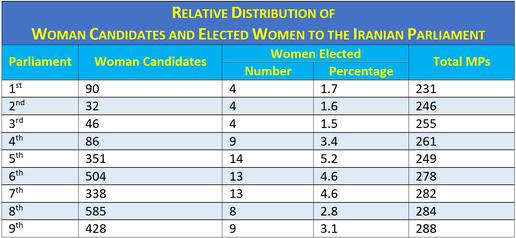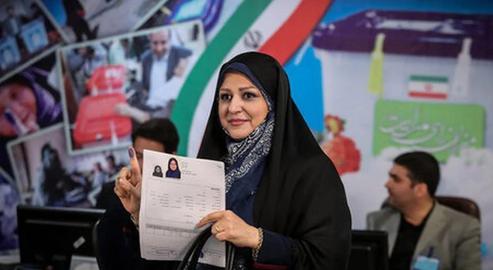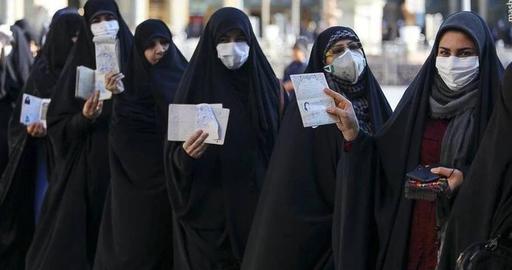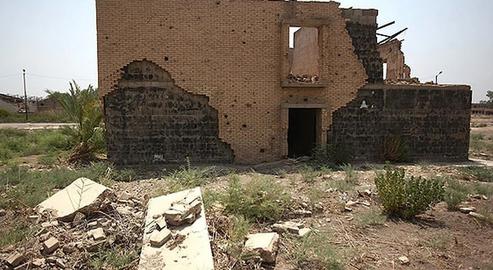Women count for half of the population of any society and it should be self-evident that their presence, or absence, in the upper echelons of politics is a key factor in any political system.
In the Islamic Republic of Iran, the question of women’s candidacy in presidential elections has been a subject of heated debate since the mid-1990s. In the end, however, Iranian women are still denied the right to run for the office of the president.
Participation in politics, of course, has two components: the right to vote and the right to run for elected office. Women’s suffrage was first granted in 1963, under the monarchy of Shah Mohammad Reza Pahlavi as part of his White Revolution: a series of reforms that were strongly opposed by Ayatollah Ruhollah Khomeini and his followers.
Under the Islamic Republic, women retained the right to vote and run for elected office in local councils and parliament, but not for the presidency. According to Article 115 of the Islamic Republic’s constitution, the president must be elected from among “personalities” that meet a series of qualifications.
The problem was that for “personalities”, the Constitution used an Arabic word, rajal, meaning “man” or “gentleman”, although many contest that this word has to mean the same thing in Persian as it does in Arabic.
In any case, as a recent comparative study has pointed out, in a group of neighboring countries in the region including Iran, Pakistan, Afghanistan, Syria, Iraq and Turkey, Iran is the only country with any potential for the sex-based disqualification of presidential candidates.
This study, entitled “Qualitative Analysis of the Argumentative Structure of Proponents and Opponents of Women's Representation Right in the Presidential Election in Iran”, came out in the spring issue of Women in Development and Politics, a quarterly published by Tehran University.
The article examined the roots of this discriminatory treatment of women, while also weighing up the arguments in favor of and against women’s inclusion in the presidential race, taking in the known views of various legislators, candidates, jurists, women's rights activists, and women with managerial experience between 1979 and 2019.
Among the proponents for women’s inclusion cited in the study were the late MP and journalist Azam Taleghani, archivist Ashraf Boroujerdi, former MP Jamileh Kadivar, ex-president Akbar Hashemi Rafsanjani, reformist activist Faezeh Hashemi, and the current Vice President for Women and Family Affairs, Masoumeh Ebtekar.
Those in favour of excluding women from running for president included Guardian Council spokesman Abbas-Ali Kadkhodaei, revolutionary cleric Hossein Ali Montazeri, and academic Mohammad Javad Arasta.
The study examined 50 different argumentative texts, authored by 26 people, including 22 for women’s inclusion and four against. It found that proponents of female presidential candidates were almost five times more likely to rely on facts, statistics and scholarly sources in their arguments alongside logical and deductive reasoning – that is to say, by most objective measures their arguments were stronger.
According to this study, supporters of women’s right to run for presidency have offered 24 separate evidentiary examples to prove their case, whereas their opponents had put forward just five. The proponents deferred to literature, languages, discussions in parliament, religious texts, human rights and the Iranian Constitution, and the principles of Shiite jurisprudence, to bolster their arguments. But the study found those against women’s inclusion only appealed to religious texts and jurisprudence.
Selective readings of religious scriptures have informed political discourse in Iran for many years, and have been used repeatedly to justify the same glass ceiling that prevents women from holding positions on the Guardian Council, the Assembly of Experts, the Supreme National Security Council, the Command of the Armed Forces, and high-ranking jurisprudential positions.
Over the years women have bolstered their presence in the Iranian political arena but they still face many obstacles, chief among which is the way Islamic laws are interpreted and executed in a country ruled by the clergy. Recent surveys have shown that female participation at the ballot box is also more or less equal to male, and yet demands for greater inclusion in politics, a core element of Iranian women’s movements for more than a century, continue to be unmet.
Official statistics charting women's presence in the last nine Iranian parliaments shows the level of female representation has remained desperately low.

The highest ever rate of female representation in the Iranian parliament was 5.2 percent, while the proportion has shrivelled in the last two legislatures. This may be the result of many factors including, but not limited to, social constraints, family situation, education, political inclination and, of course, the discriminatory policies of the Islamic Republic itself.
Related coverage:
“I Do Not See a Bright Future for the Islamic Republic”
Report on Iranian Women and Work Reveals Rise in Unemployment and Discrimination
visit the accountability section
In this section of Iran Wire, you can contact the officials and launch your campaign for various problems


























comments